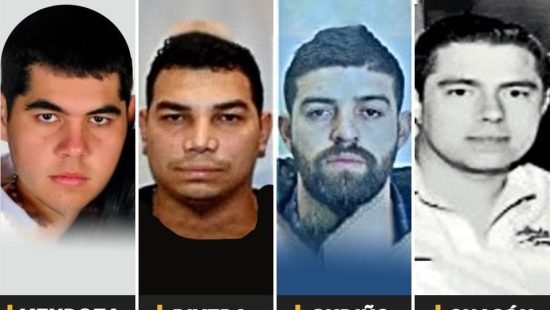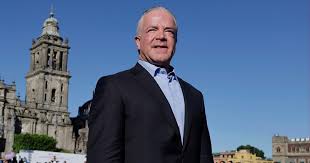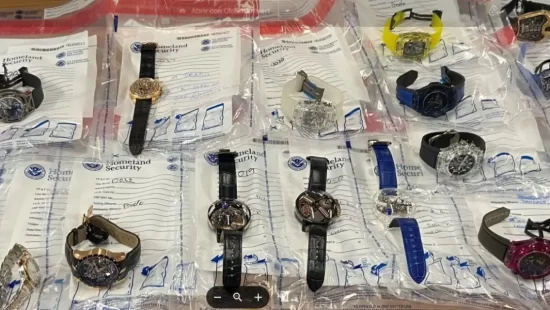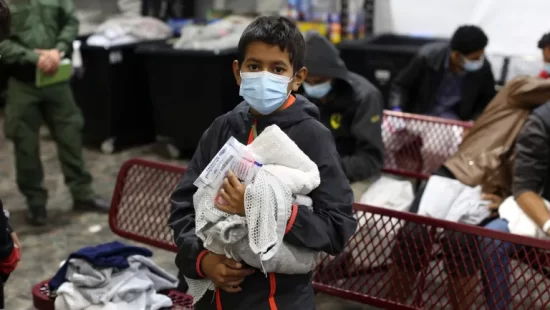Rosa Vazquez was only eight months old when she traveled from Guadalajara to California.
“I don’t remember that time period; I was a baby. My family decided to migrate, like many other Mexican families. We arrived in Santa Ana, where I grew up in the midst of a Latino community that spoke Spanish. In school, we spoke English, but my mother always made sure we maintained the Spanish language. She put us in special classes, but at home we spoke Spanish,” says Vazquez, in charge of community mobilization programs at AltaMed.
“It was very insightful to have grown up in Santa Ana; it allowed me to experience firsthand the problems that immigrants face in this country and the needs we have,” she adds.
This understanding deepened when she turned 14. She had a medical incident with symptoms of a stroke, a neurological problem that endangered her life.
“My family took me to the hospital to emergency, but they refused to treat me. We didn’t have health insurance and had a previous debt. So, in the critical condition I was in, they had to transfer me to another hospital. That’s when I realized this wasn’t fair, that many see immigrants as a burden and don’t appreciate what they contribute to this country. They don’t see us as people; we have rights. That’s when I decided to change things. My life would be dedicated to activities that bring about change in the community,” she says determinedly.
“As a child, I wanted to be a lawyer. I remember the exact day. Sonia Sotomayor had been elected to the United States Supreme Court, and in my school classroom, the teacher had her portrait on the wall. That’s when I said to myself, ‘I want to be like her.'”
Vazquez not only dedicated all her time to preparing for the task she had set for herself but also drew inspiration from exemplary individuals who showed her that anything was possible.
“As a child, I wanted to be a lawyer. I remember the exact day. Sonia Sotomayor had been elected to the Supreme Court, and in my school classroom, the teacher had her portrait on the wall. That’s when I said to myself, ‘I want to be like her,'” she recalls.
Her conviction was so strong that her teacher called her mother, telling her that Rosa wanted to be a lawyer, had big plans for her, and would need help and guidance. She could achieve it.
Her parents always instilled in her that studying was the most important thing. Her mother was always attentive, guiding and motivating young Rosa.
She already had a strong social conscience, refusing to accept that the Latino community avoids seeking medical services just because, but the reality is that they lack information and resources. She witnessed this throughout her life in Santa Ana.
“Many see immigrants as a burden and don’t appreciate what they contribute to this country. They don’t see us as people; we have rights. That’s when I decided to change things.”
With much effort and dedication, she achieved what few do—she was accepted at Harvard University. There, she took up the initiative to fuel her activism. She worked with other students, providing guidance, citizenship classes, and began getting involved in political campaigns. In the end, she didn’t enjoy it as much; she didn’t see herself making a real impact on the community.
After completing her studies, the COVID-19 pandemic began. Earlier, she had set up a small office at her home to offer translation services and advice on various topics to the community. She realized that during the pandemic, the community wasn’t receiving adequate information; many family members were disconnected from life-sustaining machines unilaterlly by institutions.
“I was upset; people should have the human right to decide what should be done with their sick relatives,” she says.
She joined AltaMed through a mentor and started working on a survey about the impact of Covid-19 on the community and the vaccination campaign, ‘Andale! ¿Qué esperas?’ (Come on! What are you waiting for?), for which they received several awards.
Currently, she continues to pursue her passion working with the community.
“Every day, you should feel happy, not see it as a job,” she says.
“We (Latinos) have fear and shame. Fear that it will affect our immigration status, fear and shame that they say we take advantage of the system, that we don’t appreciate the opportunities. But it’s not that; the healthcare system has ignored our community.”
Vazquez works with a team of 15 people to develop five groups in Southeast Los Angeles and Orange County.
“We work with adults and youth, with street vendors. We have the MediCal enrollment campaign, housing issues, community ambassadors. We try to let people from the community shape their agenda. We don’t want to be the ones who come and tell them what to do; we want them to discuss and identify their problems. Based on that, work agendas are created,” she says.
One obstacle that Rosa has seen repeatedly is the fear immigrants feel.
“We have fear and shame. Fear that it will affect our immigration status, fear and shame that they say we take advantage of the system, that we don’t appreciate the opportunities. But it’s not that; the healthcare system has ignored our community, and one of the challenges of our work at AltaMed is to show them that we will be with them, that we are not those people who come temporarily and will leave,” she adds.
The focus of the workgroups’ discussions are not always the same; they change depending on the needs of the people.
“We understand health as a global concept. Health encompasses everything; it is the most important thing for a human being. If we don’t have health, we can’t enjoy our family, we can’t work. If a person can’t pay rent, they face mental health problems, if they don’t have a home, if they have nothing to eat,” she says.
“We have to be aware that we won’t change the world, but we see changes all the time, and that motivates us. Latinos find their voice, find themselves, we see them progressing, they know how to do it, we just have to give them the opportunity,” she adds.
For Rosa, it’s a lie that Latinos don’t move, aren’t active in their community.
“We are a community that has seen and experienced many things. When we pull together, we see our power as a community,” she says excitedly.
Regarding the problems they face with MediCal, they have identified similar issues.
“People need to know that it is a state program and that a federal election does not influence the program; many are afraid of elections. Also, we have found that the enrollment problem is not simple enough. Some people lose a day of work to go to an office to process their paperwork, then realize they are missing a document or other information. Those who try to do it online encounter the same problems. So, we have to provide information, guide them. For others, it is embarrassing to admit that they don’t have health insurance,” she adds.
For Rosa, health education is vital.
“We need to know ourselves; we don’t know how to read a diagnosis, we don’t realize that if we let time pass, cancer worsens, diabetes worsens, other problems that could have been resolved earlier worsen. Preventive medicine is the solution,” she says.
“El sistema de salud ha ignorado a la comunidad Latina, tenemos que cambiarlo”,- Rosa Vazquez








